Physical Science Worksheets for Ages 6-8
85 filtered results
-
From - To
Discover the exciting world of physical science with our engaging worksheets designed for children ages 6-8! At Kids Academy, we offer a variety of printable activities that make learning fun and interactive. Our worksheets cover essential topics such as matter, energy, forces, and simple machines, providing hands-on experiments and easy-to-understand explanations. Perfect for both home and classroom settings, these resources help young learners develop critical thinking and observation skills. Spark your child's curiosity and foster a love for science with our comprehensive and beautifully illustrated collection of physical science worksheets. Explore, learn, and grow with Kids Academy today!
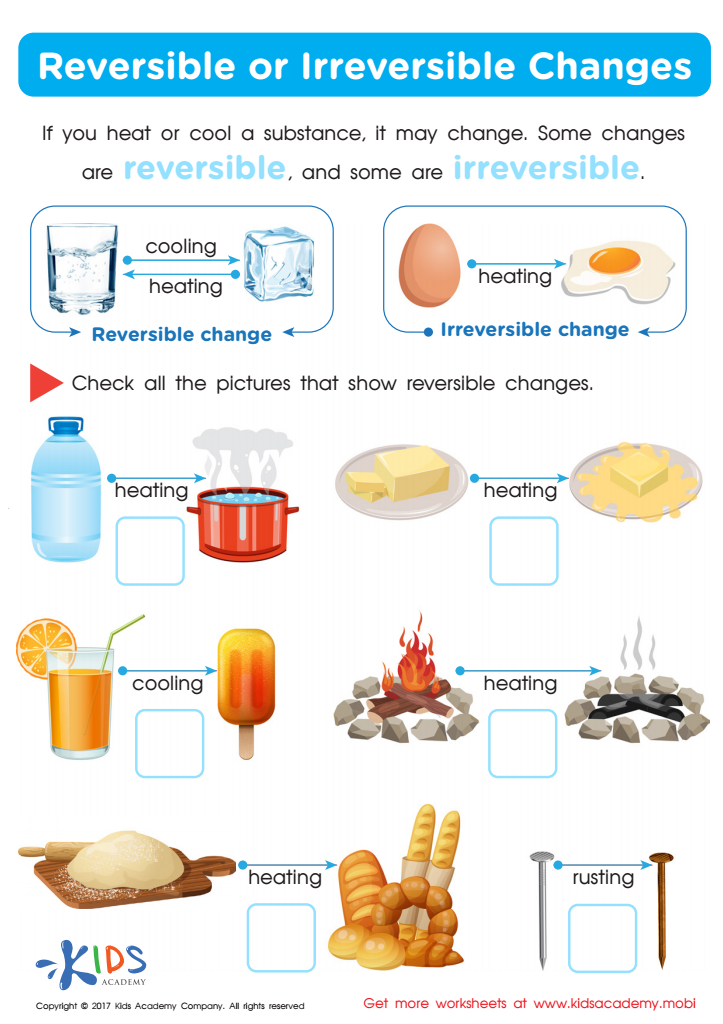

Reversible Irreversible Changes Worksheet
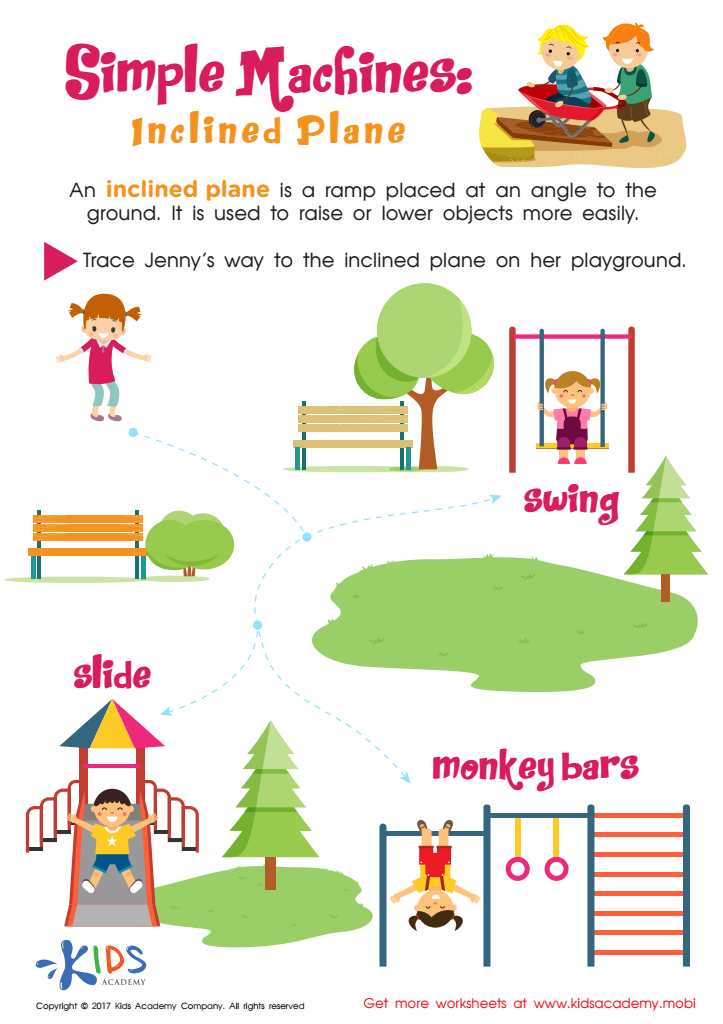

Simple Machines Inclined Plane Worksheet
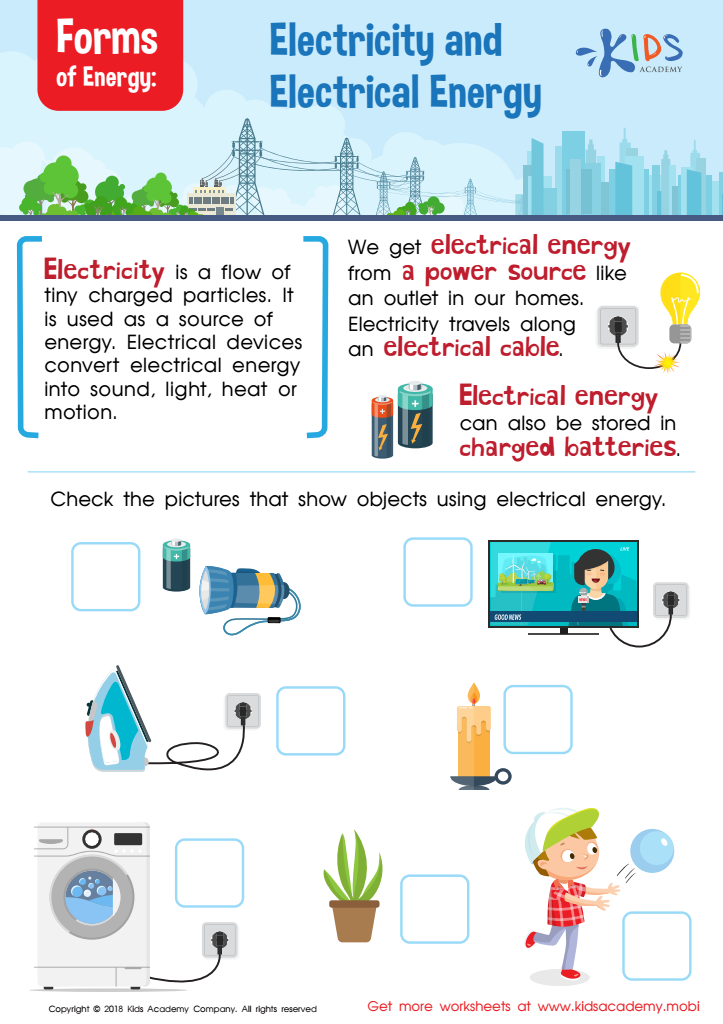

Forms of Energy Worksheet
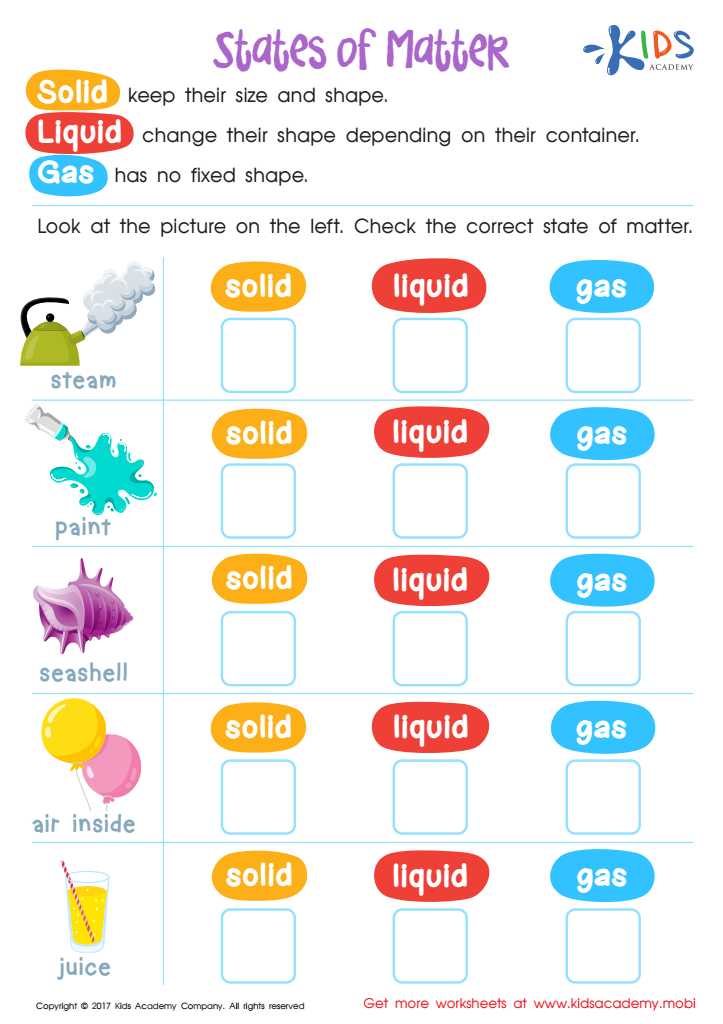

Physical Science: States of Matter Worksheet


Matter: Assessment 1 Worksheet
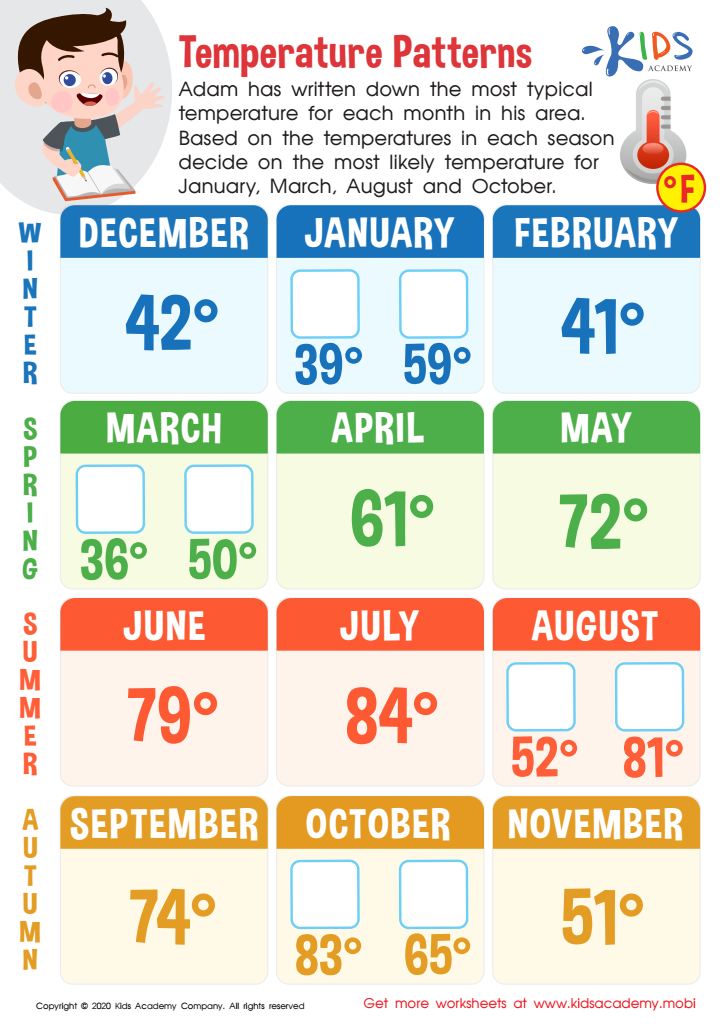

Temperature Patterns Worksheet


Force and Interactions: Assessment 1 Worksheet
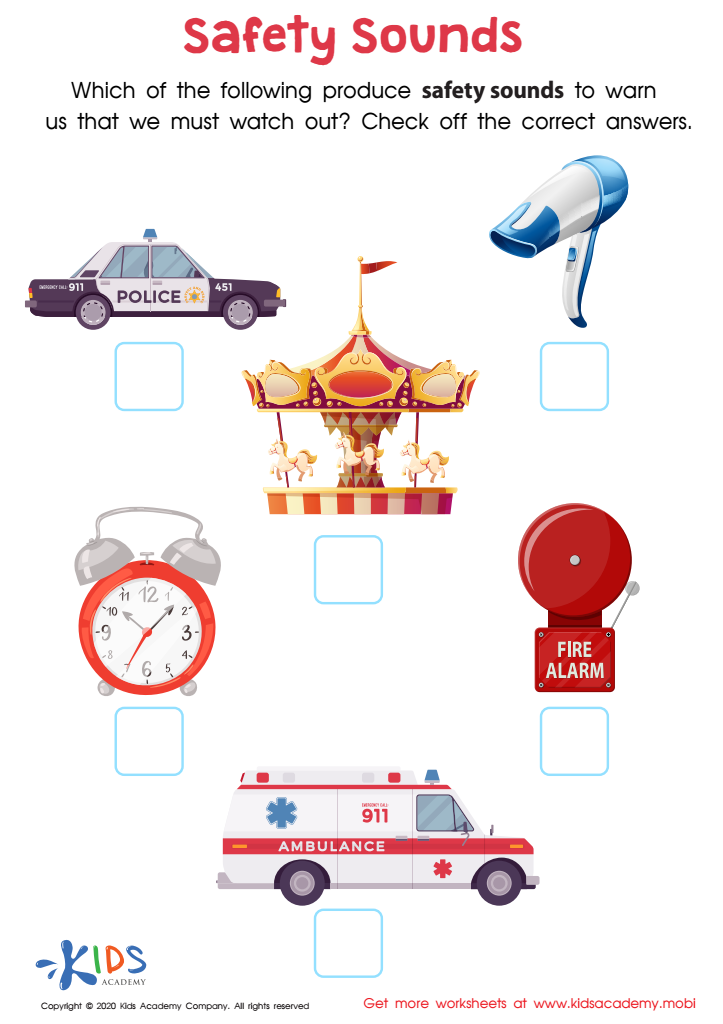

Safety Sounds Worksheet
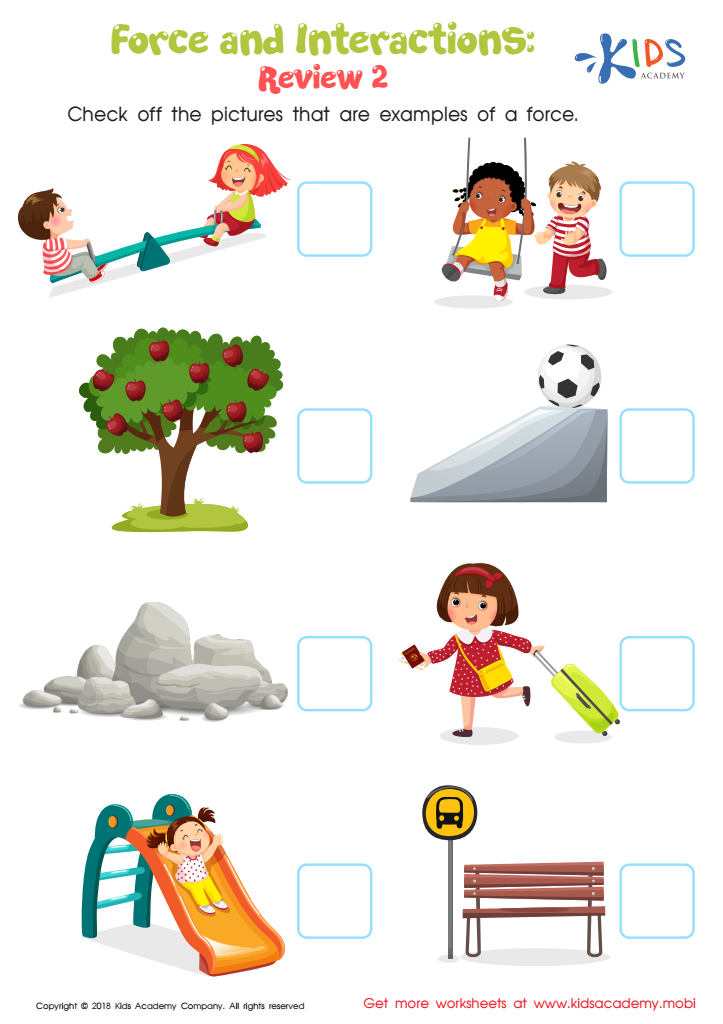

Force and Interactions: Review 2 Worksheet
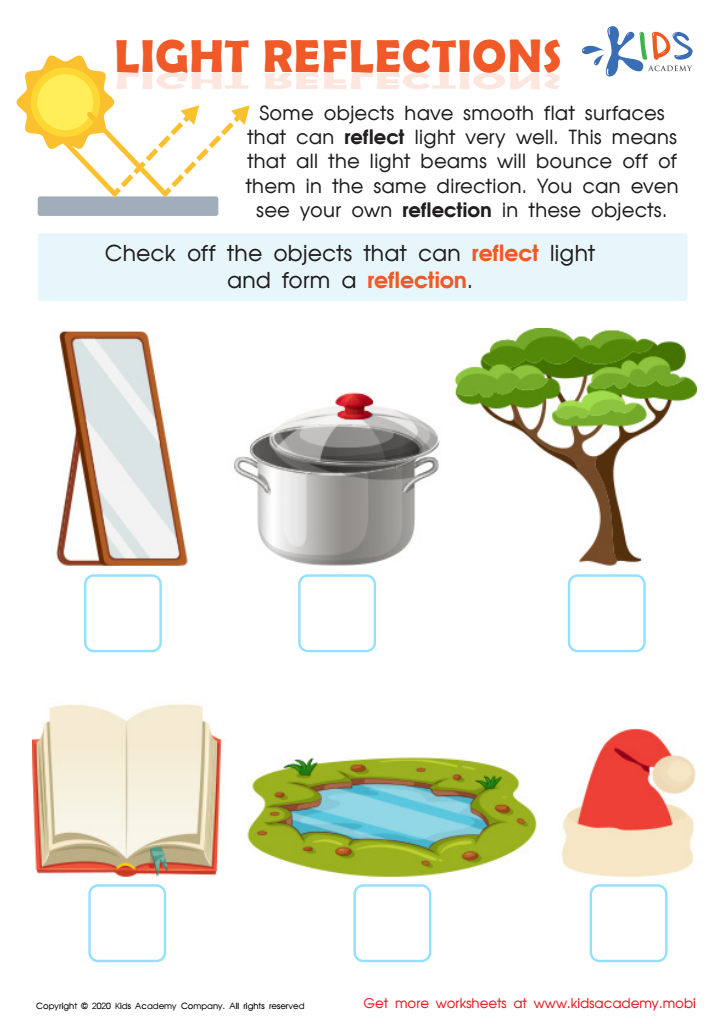

Light Reflections Worksheet


Sink or Float Printable
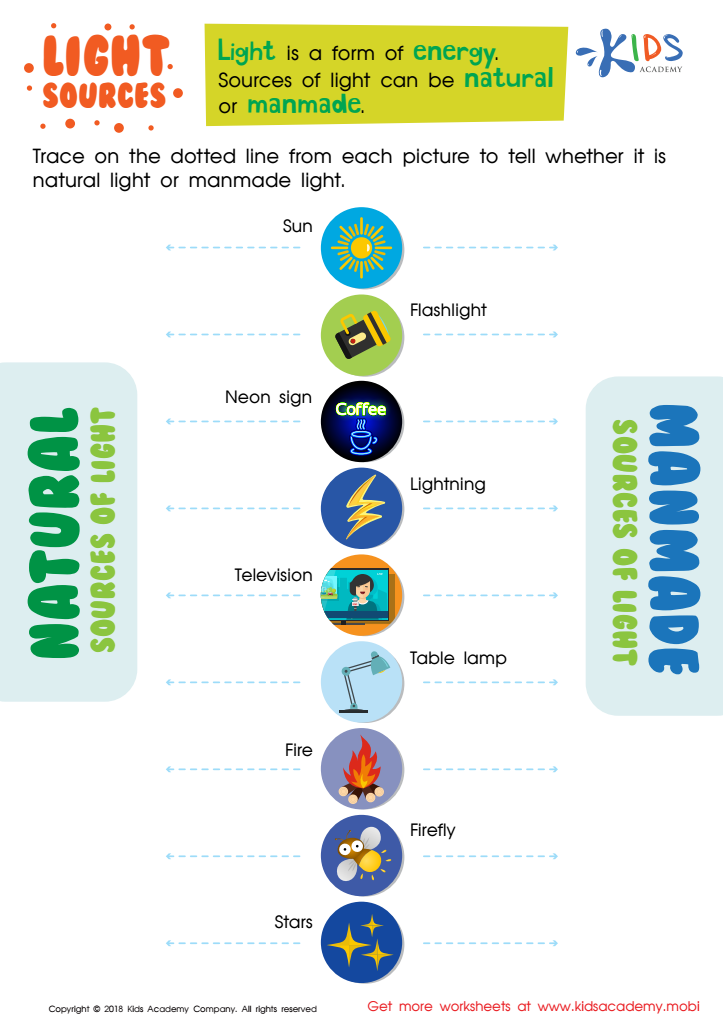

Natural and Manmade Light Sources Worksheet
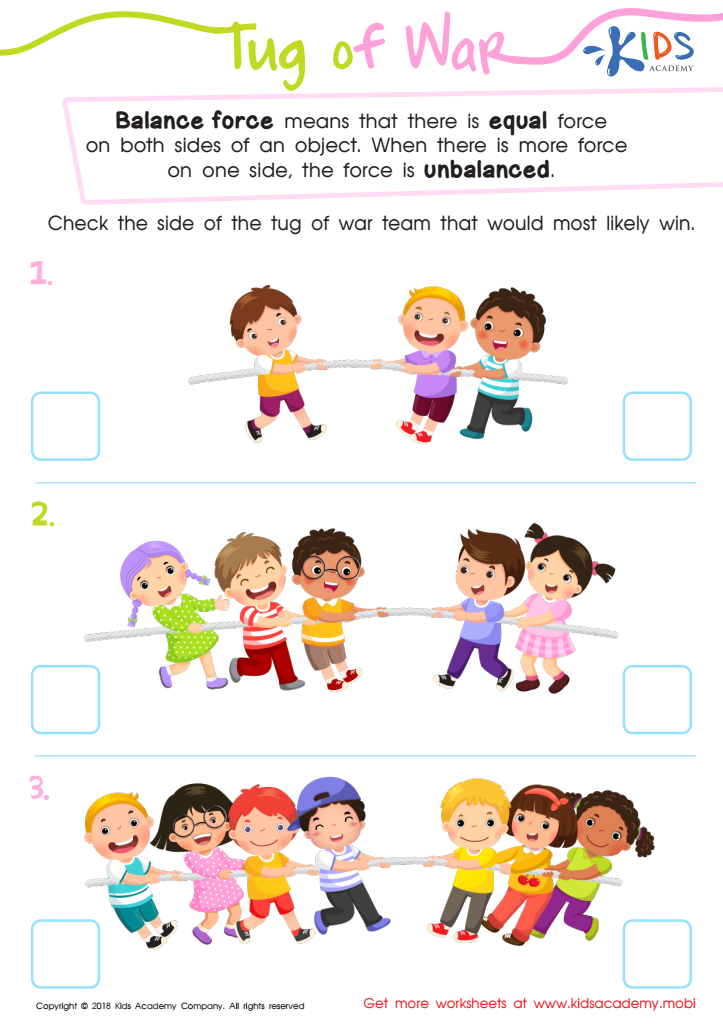

Balanced Forces Worksheet
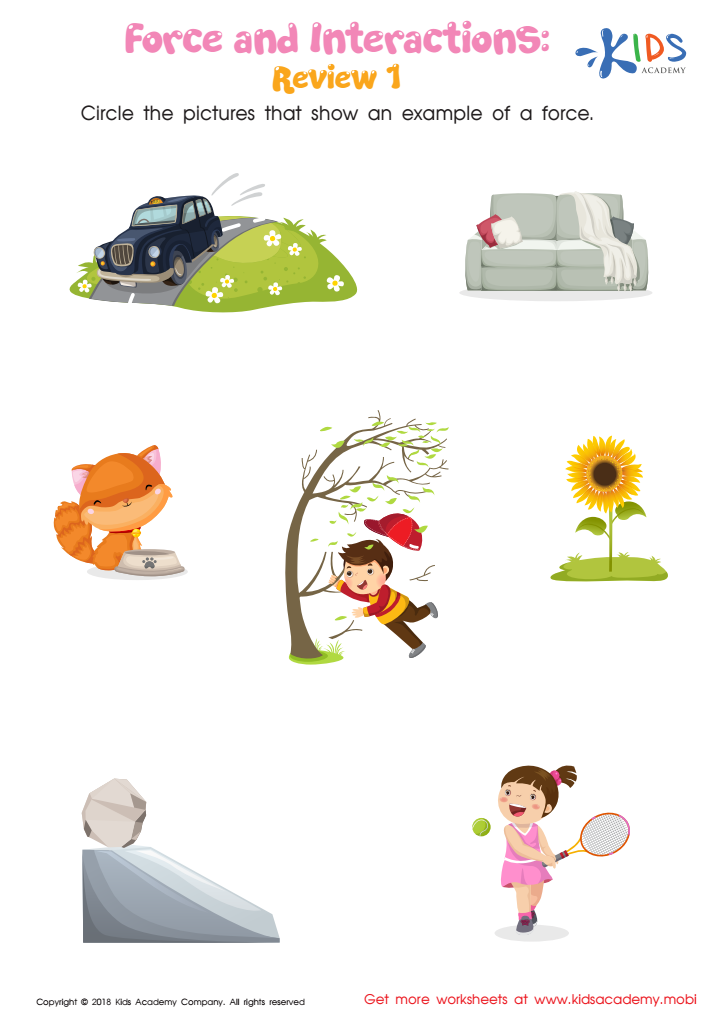

Force and Interactions: Review 1 Worksheet
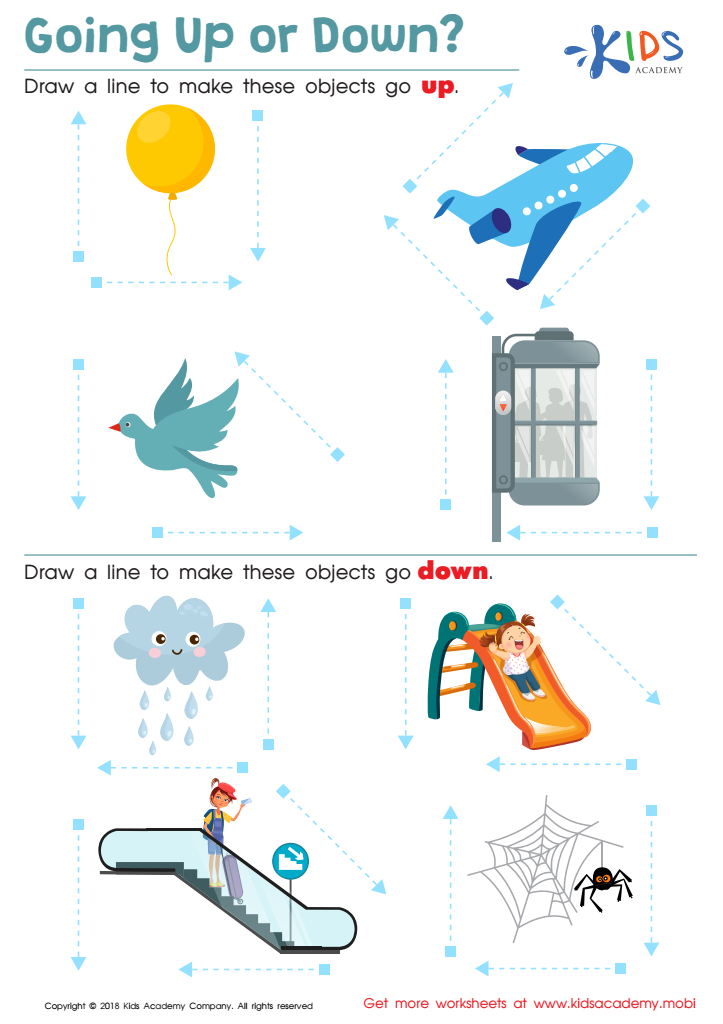

Going up or Down? Worksheet
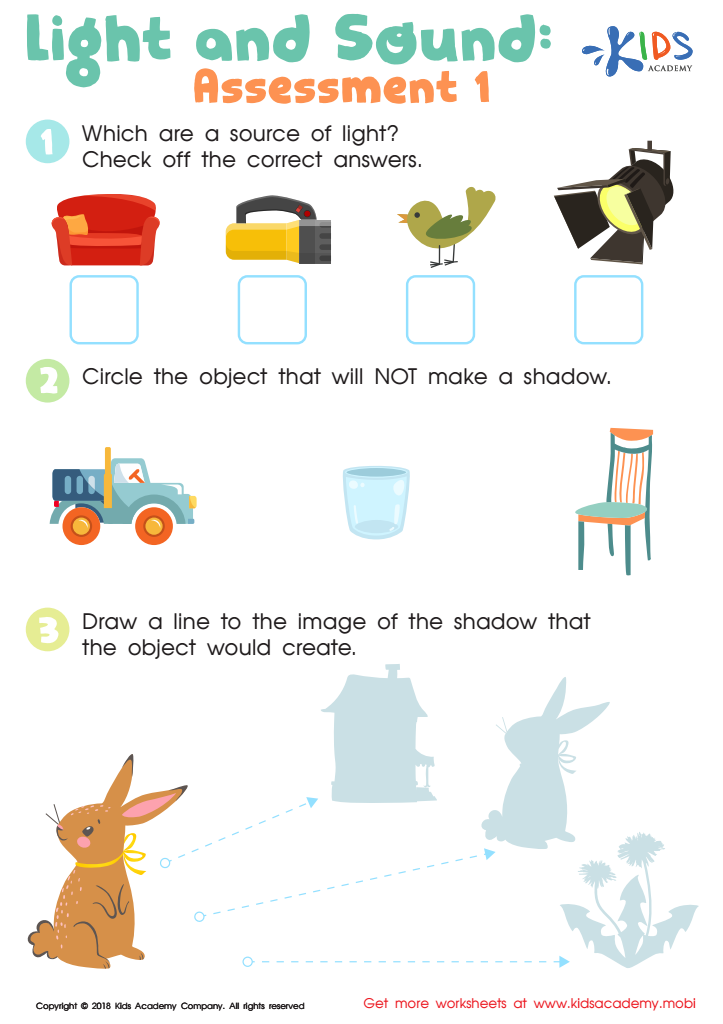

Light and Sound: Assessment 1 Worksheet
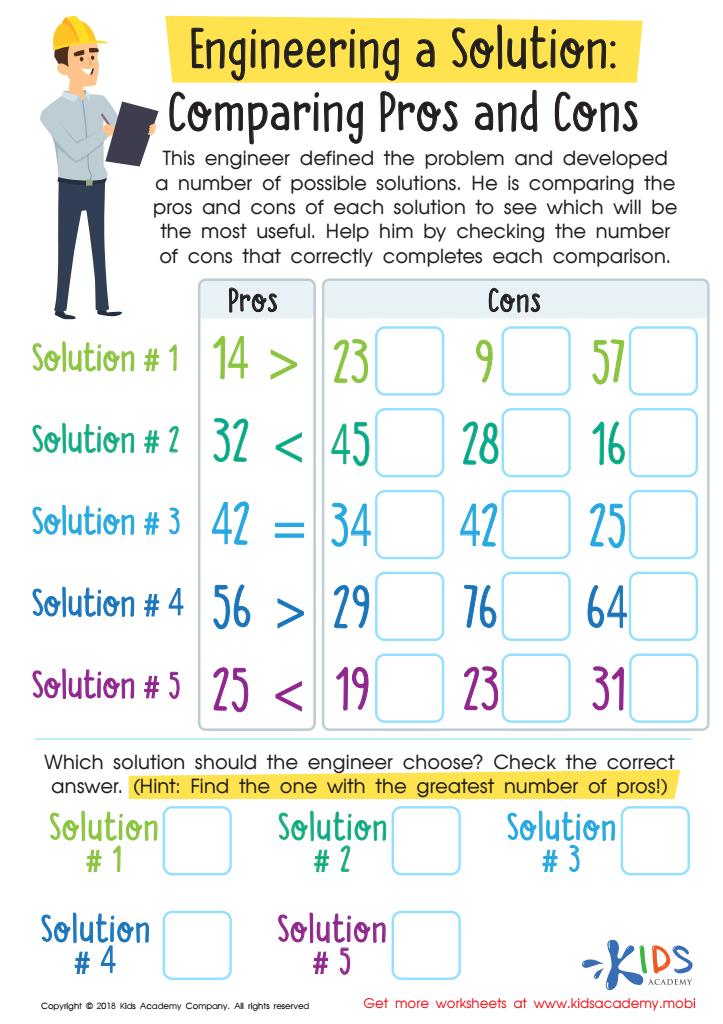

Engineering a Solution: Comparing Pros and Cons Worksheet
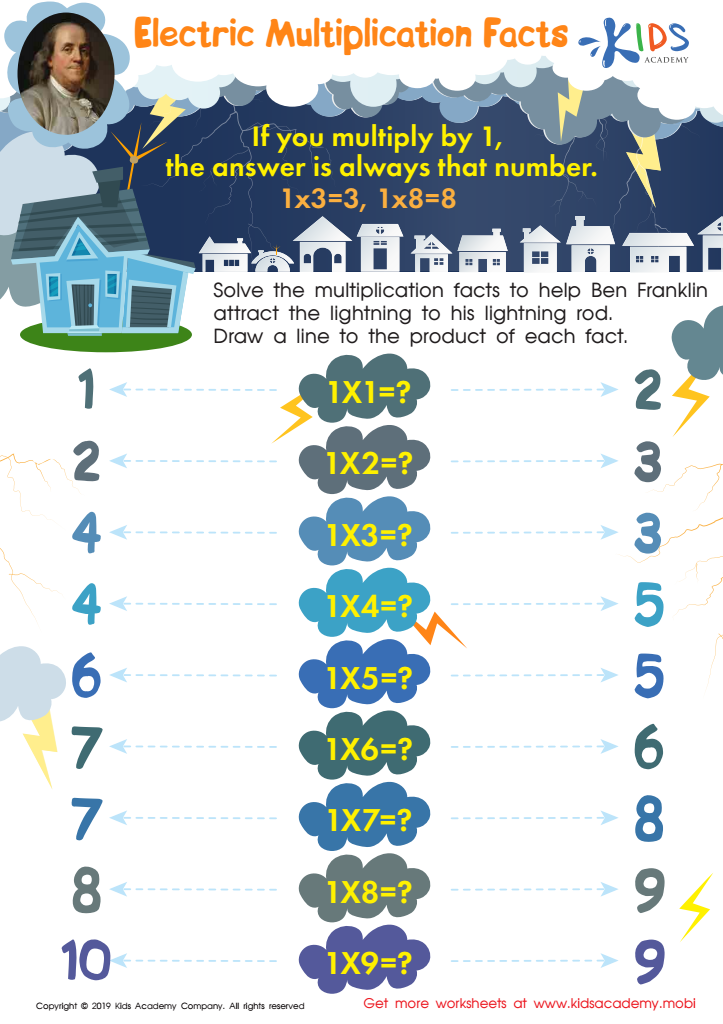

Electric Multiplication Facts Worksheet
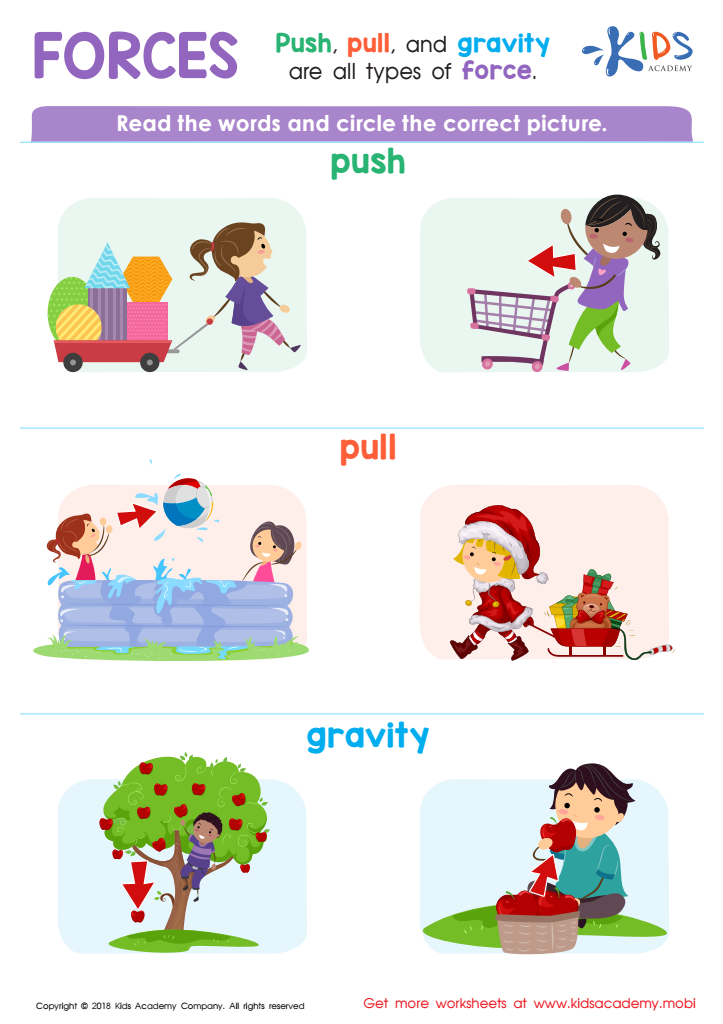

Forces Worksheet
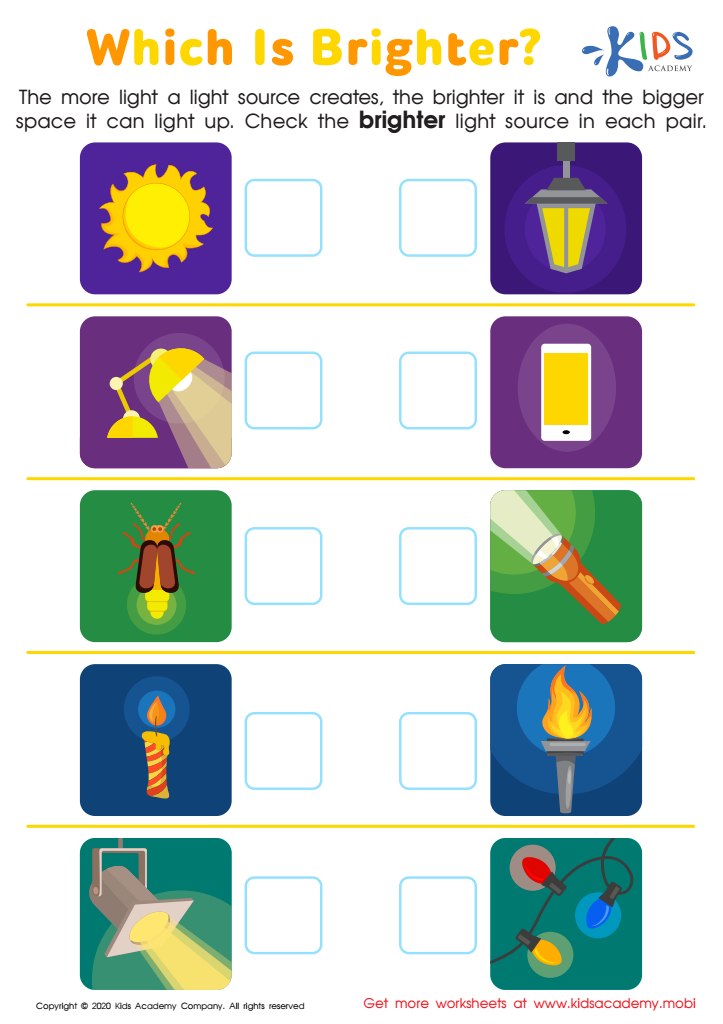

Which Is Brighter? Worksheet
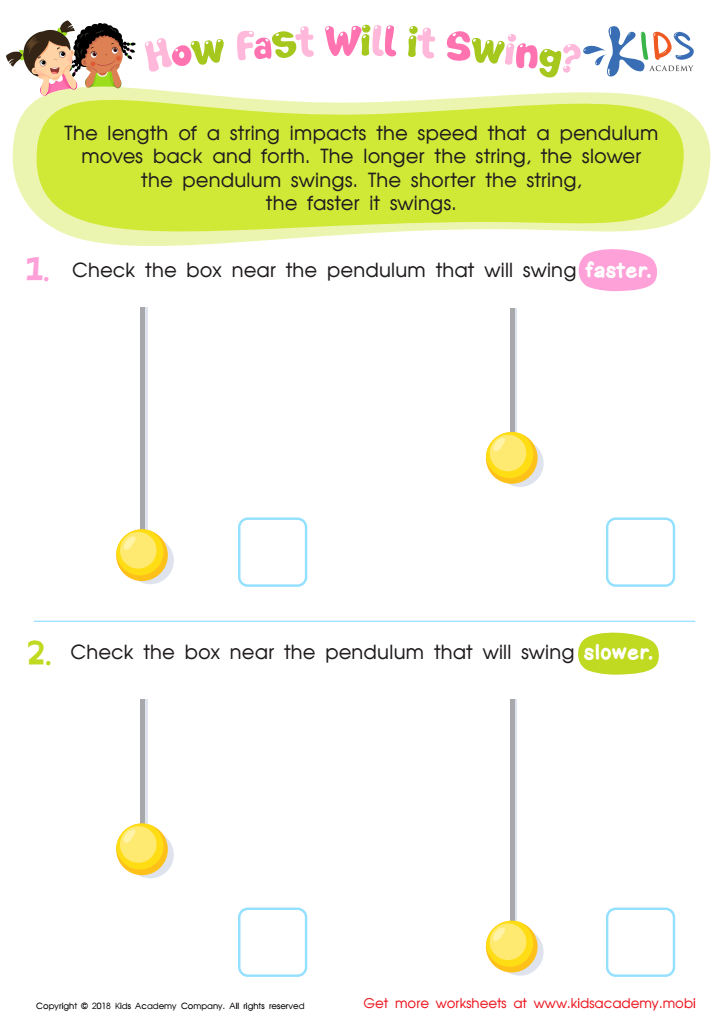

Pendulum Experiment Worksheet For 3rd Grade
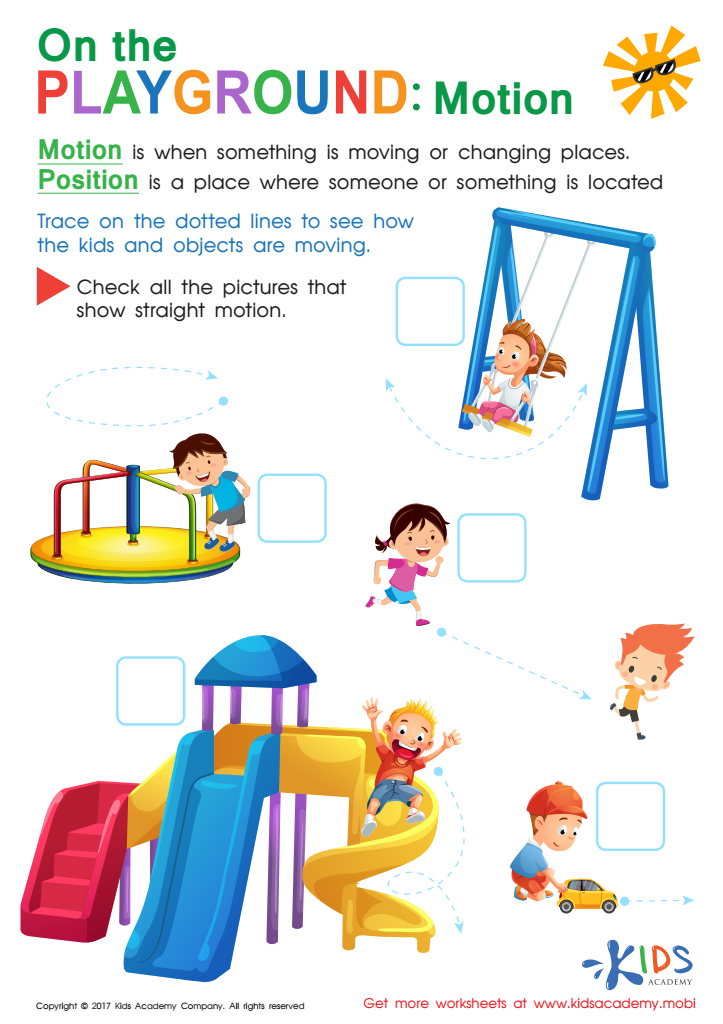

Position and Motion Worksheet
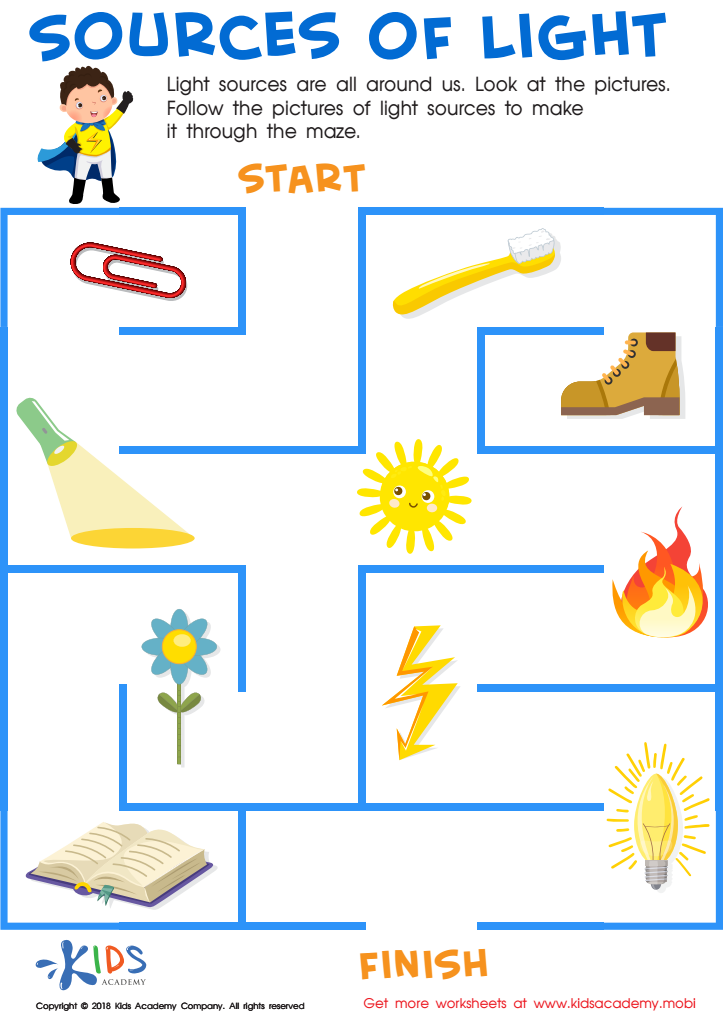

Sources of Light Worksheet
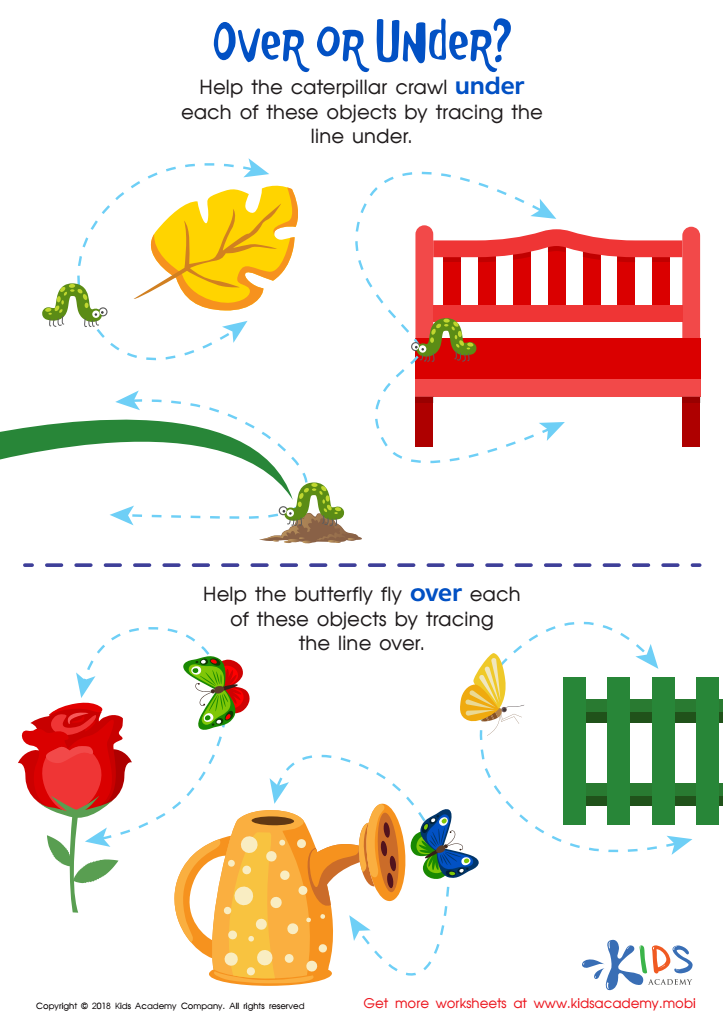

Over or Under? Worksheet
Physical Science, the study of non-living systems, is vital for young learners aged 6-8 because it lays a foundational understanding of the world around them. At this impressionable age, children are naturally curious and eager to explore, making it the perfect time to introduce basic concepts such as gravity, magnetism, light, and simple machines.
Engaging with Physical Science can enhance critical thinking and problem-solving skills. For instance, when a child drops different objects to see which hits the ground first, they intuitively learn about gravity and prediction-making. These activities spur inquiry and wonder, encouraging deeper questions and active learning.
Moreover, early exposure to Physical Science stimulates cognitive development. It's crucial for developing scientific literacy, enabling young learners to understand how things work and prompting them to think logically and abstractly. This early prowess in understanding scientific principles boosts confidence and may ignite a lifelong affinity for STEM subjects.
Interacting with physical phenomena through experiments and hands-on activities also strengthens fine motor skills and coordination. Furthermore, collaborative experiments teach children teamwork and communication.
For parents and teachers, prioritizing Physical Science nurtures future innovators and problem solvers. It creates a robust base for academic success and inspires curiosity and enthusiasm—a combination essential for personal and educational growth.

 Assign to My Students
Assign to My Students





















